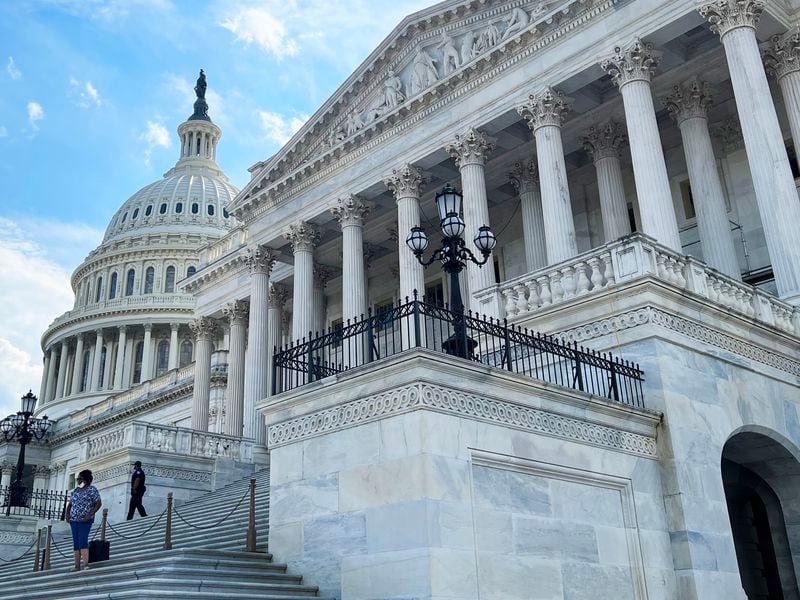A piece of legislation with heavy implications for the digital assets sector made it through the Senate Select Committee on Intelligence's funding package recently without most in the industry – and many in Congress – apparently aware of it, but industry insiders consider its chances for survival to be limited.
A Senate bill meant to fund U.S. intelligence operations included a section borrowed from an earlier bill aimed at preventing the use of cryptocurrency to support terrorism. That provision, as written, could require a massive shift in the crypto industry toward identifying users' identities to prevent sanctions that could strangle digital assets businesses. Were it to become law, it would mark the most important U.S. crypto policy yet adopted – and all without significant debate about its merits.
This section of the intelligence funding effort would speed and automate the process to sanction "foreign digital asset transaction facilitators" – including crypto exchanges – that are linked to users who support terrorism groups.
Though the Intelligence Authorization Act cleared the committee in a unanimous 17-0 vote, its crypto section wasn't mentioned publicly nor listed among the major provisions of the bill when Sen. Mark Warner (D-Va.), the committee's chairman, announced the passage in a press release. Now, Warner's office has been setting up meetings with people in the crypto sector to talk about that section, according to three people familiar with the discussions, and the Digital Chamber, an industry lobbying group, confirmed it's among those in the talks.
The dialogue suggests the matter is still in play as the spending package advances toward wider Senate consideration, potentially within the must-pass National Defense Authorization Act (NDAA).
"We’ve chatted with Warner staff on this, and they’re open to broader engagement here from industry," Cody Carbone, chief police officer for the Digital Chamber, told CoinDesk in an email. "I think it likely does get zapped out of the NDAA process given the immediate pushback from the industry."
The House of Representatives may also be unlikely to embrace this kind of provision that puts the industry in a strict U.S. box soon after the House approved wider crypto market-structure legislation meant to regulate the industry without stifling it. That passage last month of the Financial Innovation and Technology for the 21st Century Act (FIT21) saw a third of House Democrats jump on board, suggesting that crypto regulation could have wide bipartisan support across Congress. That showing reinforced another recent industry success in the Senate in which 11 Democrats voted with Republicans to erase the Securities and Exchange Commission (SEC) accounting policy despite a promised (and fulfilled) veto from President Joe Biden.
With so many senators sympathetic to the industry, passage may be difficult to win for illicit-finance legislation that didn't come through an open debate and amendment process. The original bill was backed by Sens. Warner, Jack Reed (D-R.I.), Mike Rounds (R-S.D.) and Mitt Romney (R-Utah).
Overly broad?
The language in the spending bill may implicate a broader-than-intended array of crypto interests, and it could include central banks that issue central bank digital currencies (CBDCs) and software developers, industry insiders contend, adding that other lawmakers seem to have been unaware of its existence. It could raise concerns, too, among users of the market-leading Tether stablecoin (USDT), which has been under U.S. scrutiny for the use of its tokens by bad actors.
Warner's office didn't respond to a request for comment on the crypto provision, nor did the office of Sen. Mark Rubio (R-Fla.), who is vice chairman of the intelligence committee.
The Washington-focused representatives of the sector's lobbying groups have sought to make it clear to policymakers that they're open to discussion on legislation to prevent illicit use of cryptocurrency, as this provision aims to accomplish. Such bills have also been broadly recognized as necessary to get Senate Democrats on board with other crypto initiatives to regulate the structure of the markets and the issuance of stablecoins.
"Overall, we’re aligned with the goal of the legislation to cut off funding for foreign terrorist organizations, and I appreciate that it limits coverage to those groups that have 'knowingly' facilitated funds to bad actors," Carbone said, adding that the legislation isn't entirely bad or good. But the guidelines for identifying violators and the lack of a proportional – perhaps tiered – sanctions system could be problematic, he argued, and he said it puts too much authority in the hands of the U.S. Treasury Secretary.
The crypto industry is also keen to avoid a repeat of its painful legislative surprise in an infrastructure bill in 2021, which included an 11th-hour provision that directed crypto taxation. Getting blindsided by that bill amplified the industry's interest in funding a bigger Washington lobbying presence that's now weighing in on this intelligence bill.
